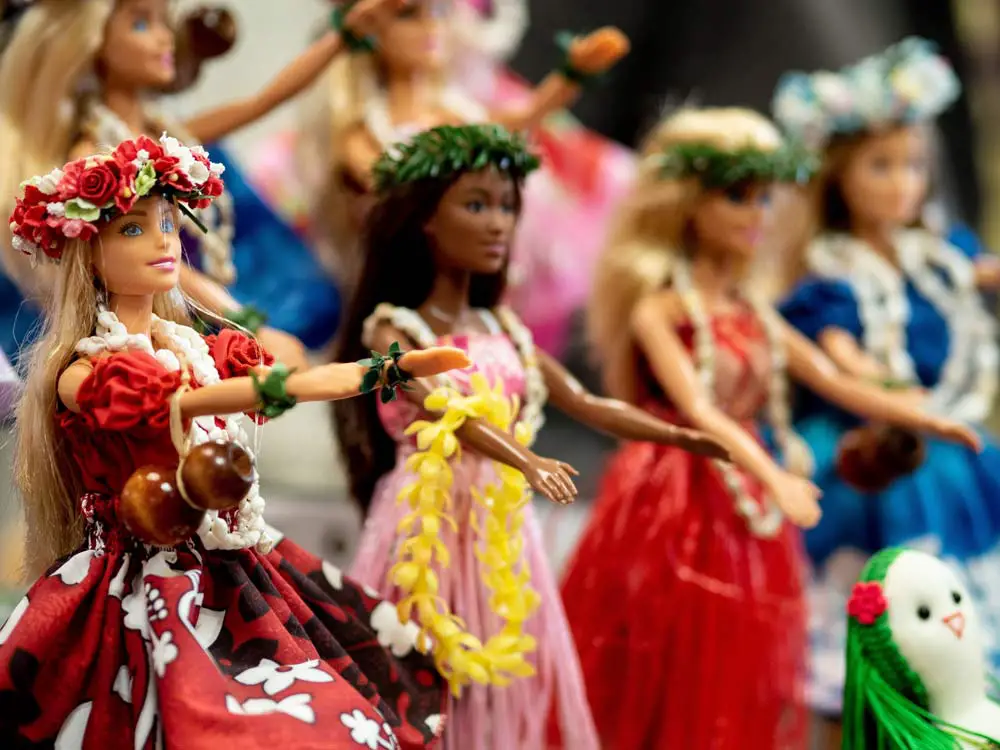
By Sonali Kolhatkar
When I was a little girl, my parents bought me a Barbie — a blonde, blue-eyed doll who I played with for years before I ever met a blond, blue-eyed person. My doll set the standard for beauty — one that was out of reach of a brown-skinned, dark-haired kid whose body type was chubby in contrast to my Barbie, but typical for my age.
Eventually, I hated everything the doll stood for: dangerously unattainable beauty standards, the deliberate vapidity of feminism, the centering of whiteness. So, I was surprised when my two sons, aged 10 and 15, recently said they were eager to see the new Barbie film.
The film’s clever marketing has people of all demographics excited: “If you love Barbie, this movie is for you. If you hate Barbie, this movie is for you,” proclaimed the trailer. But ultimately the film is a commercial for an outdated toy.
Launched in 1959 and conceived by Ruth Handler, Barbie was modeled on a German doll named Bild Lilli, an adult men’s gag gift. Brennan Kilbane wrote in Allure that, “Bild Lilli was a single-panel comic character in a German tabloid—a sweet, ditzy, curvy figment of the male imagination, frequently losing her clothes and enjoying the company of men.”
 Handler wanted to market an “adult” doll to girls because the contemporary dolls ones were either baby dolls or had, in her words, “flat chests, big bellies, and squatty legs — they were built like overweight 6- or 8-year-olds.”
Handler wanted to market an “adult” doll to girls because the contemporary dolls ones were either baby dolls or had, in her words, “flat chests, big bellies, and squatty legs — they were built like overweight 6- or 8-year-olds.”
The doll has always been tone-deaf. Soon after Barbie was launched, just as second-wave feminism emerged, Mattel released Slumber Party Barbie. This Barbie, Devika Sunand wrote, “came with pink pajamas, a pink scale set at 110 lbs, and a diet book on how to lose weight, with only one instruction: DON’T EAT!”
But because the new film validates such criticisms, audiences are expected to embrace it as feminist-themed entertainment.
They’re invited to wear the doll’s signature Pepto-Bismol pink to theaters — the same color associated with gender stereotyping of girls. A social media fashion trend called #Barbiecore on TikTok is garnering hundreds of millions of views for posts created by young influencers heavily made up to look like the doll.
Barbie has also popularized the horrific-sounding “bimbo feminism.”
“Instead of abandoning femininity to succeed in a patriarchal society, bimbo feminism embraces femininity while supporting women’s advancement,” wrote Harriet Fletcher in The Conversation. In other words, women are supposed to attain career success while appealing to men.
There persists a belief that Barbie is a feminist icon in spite of Mattel steering clear of the f-word. Robbie Brenner, head of Mattel Films, says the film is “the ultimate female-empowerment movie.” While America Ferrera’s character, struggling with the pressures of patriarchy, is the film’s most relatable protagonist, she remains a supporting actor.
Even the right-wing backlash to the film as “anti-man” is being touted as a measure of its feminism. If it’s angering the misogynist incels, surely it’s on the feminist track, claim the film’s defenders. “It’s not a Barbie doll that threatens women’s rights, opportunities, and safety — it’s the patriarchy,” wrote Fletcher. But both are true, to different extents.
Defenders of the film point to its diverse casting. But as Kilbane explained in Allure: “The Barbieverse distinguishes between two Barbies. There’s Barbie ‘the icon,’ or ‘brand,’ who can be blonde and short, or Black and svelte, or Frida Kahlo and white. There’s Barbie ‘the character,’ who is exactly who you’re thinking of, and will be played by Margot Robbie.”
Ultimately the film is a $145 million ad campaign for a toy that should have faded away years ago.
![]()
Sonali Kolhatkar is the host of “Rising Up With Sonali,” a television and radio show on Free Speech TV and Pacifica stations. This commentary was produced by the Economy for All project at the Independent Media Institute and adapted for syndication by OtherWords.org.





























Mark says
Oh joy, plain and simple, if you don’t want to see the movie then don’t go. Guessing the writer has some jealousy issues too.
John says
Loved trailer 2 featuring a mix of The Beach Boys Fun Fun Fun. A great song from the 60s very appropriate the doll of that era.
Dennis C Rathsam says
Barbie, is not the problem…you are! Maybe just maybe it will inspire young girls to work out, stop stuffing everything in thier mouth. Maybe have some self esteem. They can be anyone they want to be, its all up to the individual….Ya want look HOT!!! or ya wanna be a BIMBO?
Nancy N says
You obviously know NOTHING about young girls if you think “well, if only someone would pressure them to look hot…”
Eating disorders among girls are rising dramatically and surveys show as many as 1 in 5 of them may have symptoms of disordered eating, if not full-blown diagnosable disorders. But sure, they just need someone to pressure them not to be fat. Eyeroll.
Dave says
Just another person with issues about a free choice we in the people in America can make. You don’t want to own a Barbie or see a movie,. Then don’t.
DMFinFlorida says
You can put lipstick on a pig and it’s still a pig. I never liked or wanted a Barbie as a child and this new trend makes me sick. I was raised on a farm and was very happy being a tomboy, riding a horse, raising animals. I was also guided to conform to the 50’s and 60’s feminine young lady, wearing dresses to school and gloves to church. Mother wanted me to be able to survive in all scenarios. Yet it was (and still is to some extent) a misogynist environment where you have to work twice as hard to get as far. Thankfully, some things have changed.
I wanted to fly planes and told my parents I wanted to go in the Air Force. I was told not just no but HELL NO. Yet today, my daughter-in-law is a CWO3 in the Army and she earned it by doing every single thing the men did at Warrant Officer training to the point that she had mold growing in her hair after sleeping on wet ground for a week in the summer in Alabama out in the field. So yes, we’ve come a long way. During one tour, she was an 82nd Airborne paratrooper and served security in Haiti after the horrible earthquake in the mid- to late-2000’s. She served in Afghanistan, and more recently in Qatar. And she looks like a model, but hides it under her uniform to cling to what she has achieved.
But in my opinion, women like her and like me, who worked our butts off to compete in a patriarchal society, are offended that this Pepto pink crap is being glorified yet again. I don’t care how you sugar coat the marketing. Barbie is still a completely unrealistic representation (physically) of what young women should be trying to achieve. Perfection is an illusion. I’m glad I achieved as much as I did in life, but I damned well earned it, just like my daughter-in-law. Not all women have that level of accomplishment and they are the ones who should be idolized.
No, I’m not jealous of her at all. I was once asked to compete in a state competition leading up to the Miss America pageant. I declined because I wanted nothing to do with objectifying my looks or body. I wanted to earn my way with my brain and my skill set, and I did. A lot of men still don’t get that.
I can’t wait for the bashing to begin.